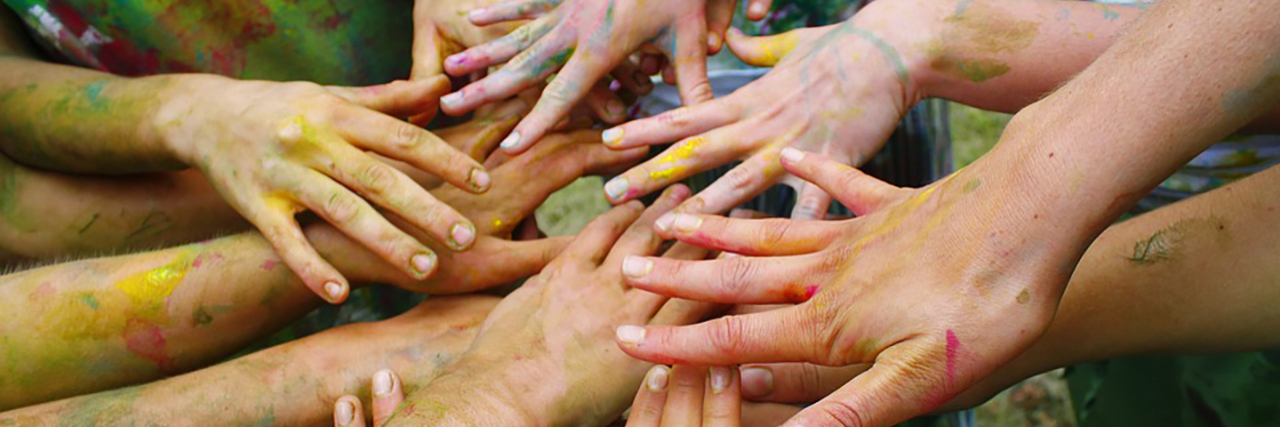I love art, craft and design. It has been an obsession of mine since I started school. I loved creating something, getting messy with paint, glitter and glue and most importantly playing around with different methods and materials. I thought I was a great artist. I thought I was going to go to art school and become a famous artist. I loved art in school because it made sense to me; I finally understood something I was missing from math and science. Art was everything to me, but as I grew older and throughout my adolescence, I lost my confidence. I wasn’t a great artist at all. I could barely draw a straight line with a ruler. I knew the root of this problem and it lay in my hands. My cerebral palsy made art classes a living nightmare.
I got criticism and comments that derived from my wide brushstrokes, my wild pencil markings or the clumpy clay sculptures. I never felt I had a skill or was comfortable in any exam, except Art History but that’s because my teacher was the coolest woman ever. I was full of self-doubt and comments such as “Draw your lines straight; just use a ruler!” didn’t help. I’m sure my teachers knew my right hand was weak and usually stayed in a loose fist while my left hand did most of the work. There was never any sympathy towards my work; they gave me constructive criticism on my assignments and projects and never considered my disability. I suppose in a way it was for my own good. I never want special treatment for my condition, but sometimes it’s necessary to level the playing field. I received extra time and a separate room to do my state exams, and I am really grateful for those provisions as it helped me get good grades, but sometimes I wish attitudes were different.
Would I be a better artist if I was able-bodied? Would I be a great painter, sculptor or drawer? This thought plagues me on a daily basis and it always recurs when I think I can be crafty or good with DIY. I get defensive and quiet when people criticize my efforts. I am trying my best with poor flexibility and grip in my fingers, so it’s hard to hold a pencil or sew, but I still persevere and it’s hardly ever recognized.
Last week at work, we had a “team building” exercise of creating bakery boxes out of paper, sticky tapes and cardboard in 10 minutes. I strategically decided to organize and prepare all the tape we would need to finish the boxes, as working fast and precisely with my hands is not my strong suit. I had done my best with the time allotted, but the judges tore the finished product to shreds — literally. They poked holes in the gaps and the messy parts of the tape-seamed lines and said, “It’s not good enough for the product line, let alone a client.” I am very sensitive about talking about my condition in the workplace, however part of me wanted to defend my team’s work by pointing out my disability and the short time frame. But I didn’t want the pity looks or the sympathy vote. The judges are right to an extent, it’s not good enough for the client or a business deal but still, it doesn’t feel right to misjudge my circumstances.
“It’s nothing personal, it’s just business,” I tell myself through gritted teeth as I awkwardly smile in the face of the criticism. But it doesn’t feel like business, it feels personal. If people don’t see me as creative, crafty or artsy, then what does that mean? If people don’t see me in that way, then how am I meant to see myself? I know I’m definitely reading into this way too much, but recently it’s all I can think about. It’s part of my overall worry: if people won’t take me seriously, then how will I take myself seriously? I feel it’s a matter of respect — for people to respect me and for me to respect for myself. I’m still working on this, but I’m persevering with my art and my life with cerebral palsy.
Photo provided by contributor.

